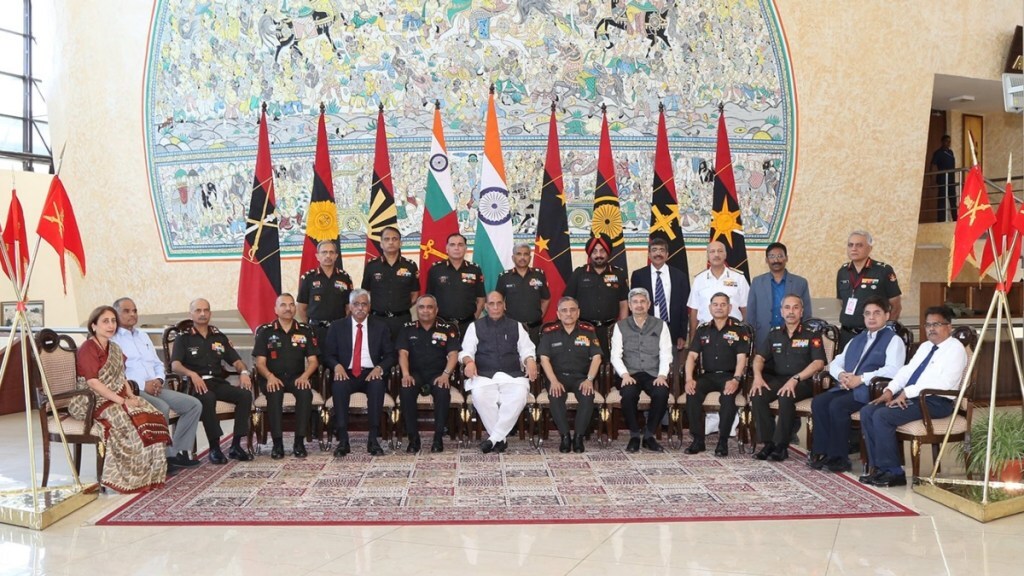The Army Commanders’ Conference brought together the Indian Army’s top leadership from virtual sessions on March 28 to physical gatherings on April 1 and 2 in New Delhi. In the conference discussions were targeted over critical security scenarios, border situations, and the challenges facing the nation’s security apparatus.
Conference key focus was kept on various aspects including organisational restructuring, logistics, administration, human resource management, modernisation through indigenisation, induction of niche technologies, and evaluating the impact of global situations.
The third day’s highlight was an address by Raksha Mantri, to the senior leadership of the Indian Army, following speeches by other top officials including the Chief of Defence Staff (CDS), Chief of the Army Staff (COAS), Chief of the Naval Staff (CNS), and Chief of the Air Staff (CAS). The address was also accompanied by a brief on the “Technological Infusion and Absorption Roadmap for Indian Army” plans.
The minister reiterated the immense faith that over a billion citizens of India place in the Indian Army, describing it as one of the nation’s most trusted and inspiring institutions. He emphasised the Army’s pivotal role in border security, counter-terrorism efforts, and providing essential support to civil administration when required. Singh noted, “The Army is present in every domain from Security, HADR, Medical Assistance to maintaining the stable internal situation in the country,” highlighting its importance in nation-building and overall national development.
In light of the complex global situation, Raksha Mantri Singh emphasised the need for the Armed Forces to consider unconventional and asymmetric warfare, including hybrid warfare, in future conflict planning. He pointed out that cyber, information, communication, trade, and finance have become integral aspects of future conflicts, urging strategic consideration of these facets.
Regarding the current situation along the Northern borders, Raksha Mantri Singh expressed confidence in the troops’ steadfastness, affirming that ongoing talks for peaceful resolution will continue. He commended the Border Roads Organisation (BRO) for their efforts in significantly improving road communication under challenging conditions along both Western and Northern borders.
Commenting on the situation along the Western borders and cross-border terrorism, Singh praised the Indian Army’s response. He highlighted the effective synergy between the Central Armed Police Forces (CAPF)/Police forces and the Army in combating terrorism in Jammu and Kashmir, noting its positive impact on regional stability.
Singh commended the Armed Forces for their high operational preparedness and capabilities, which he has personally witnessed during visits to forward areas. He paid tribute to the brave soldiers who have made the ultimate sacrifice in defence of the nation and acknowledged the Army’s contributions to military diplomacy, strengthening cooperative relationships with foreign Armies.
He praised the Army’s efforts in developing niche technologies in collaboration with civil industries and educational institutions, aligning with the goal of ‘Modernisation through Indigenisation’ or ‘Atma Nirbharta’. The minister also Applauded the incorporation of technological advancements and stressed on the importance of regular engagement with emerging technologies.
In the closing remarks, the Minister emphasised on the need for ongoing discussions on defence diplomacy, indigenisation, information warfare, defence infrastructure, and force modernisation. He recommended doctrinal changes when necessary to ensure the Armed Forces are prepared for the future. Singh assured the Government’s commitment to supporting the Army’s reforms and modernisation efforts.


